Varsities can survive by promoting sustainability
Embedding sustainability in a university's operations while cultivating sustainable behaviour among its academe and community is a way to align education and research to environmental, social and governance (ESG) issues. Besides, ESG is a vehicle by which a university can demonstrate its service to society. The Vice-Chancellor & Chief Executive of AIMST University, Professor Datuk Dr John Antony Xavier, has suggested several ways a university can discharge its mission to solve ESG concerns in an article titled 'Varsities can survive by promoting sustainability.' The article got featured in the columnist section of NST on 25 January 2022. Click here to read.
AIMST LIBRARY PORTAL NEW INTERACTIVE FEATURES
AIMST University Library is pleased to announce the launch of its new and improvised Library Portal on 24th January 2022. The new portal is designed to enhance user experience with the latest features, which are more user-friendly and easier to access. Accordingly, the new features at the homepage of the Library Portal are as follows:
- General information on Library Operating Hours, Organisation Chart, Library Collections & Loan Eligibilities, Library Facilities & Services
- Library Web-OPAC Link, Online Book Renewal & Reservation
- Self-Library Registration / Online Registration as a Library Member
- Announcements, notices, upcoming programmes/events
- The arrival of new books
- Links to subscribe to online resources, free access to journals & e-books links
- Videos, tutorials, user guides for online resources, citation & referencing styles
AIMST Post Pongal 2022
Anaesthesia Has Revolutionised the Medical World
Anaesthesia has revolutionised the medical world by allowing surgery to be performed without any pain or awareness and even day-care surgeries. Learn more about anaesthesia in an article by Dr. Shivali Shamhser, Senior Lecturer at the Anaesthesiology Department, Faculty of Medicine. The article got featured in the ‘Letters to the Editor’ column of NST on 20 January 2022. Click here to read. For more info about the medicine programme, click here.
Diploma in Nursing Walk-In Interview
AIMST University, in collaboration with Putra Medical Centre (PMC) Alor Setar, is offering 100 % sponsorship* for the Diploma in Nursing programme. Those interested can attend the walk-in interview on Friday, 21st January 2022, from 9 am – 1 pm at the 2nd floor Dome, Admin Building, AIMST University. If you are SPM 2021 leaver, you can bring your trial result for the interview. For more information, please view the poster or contact Ms. Rose at 012- 4448108 for further clarification. You may also call any of our consultants. Click here For more updates, please follow our Facebook. Click here (*T&C apply)
EXCELLING IN WORLD-CLASS RESEARCH’
‘Excelling in world-class research’ is an article focusing on recent achievements and collaborations by AIMST University. The article was contributed by Associate Professor Dr. Venkata Suresh Chinni, Deputy Vice-Chancellor, Research and Industry Linkages. It got featured in the ‘Higher Education’ column of The Star on 13 January 2022. For more info about AIMST, click here. Follow us on the AIMST2U Facebook page.
MBBS Professional Examination
The Director of Hospital Sultanah Bahiyah Alor Setar, Dr Zaiton Binti Udin, visited AIMST University during the MBBS Professional Examination V (year 5 examination). She was invited as an external observer for the examination conducted by the Faculty of Medicine. In addition, consultant specialists from Hospital Sultan Abdul Halim Sungai Petani and Hospital Sultanah Bahiyah Alor Setar served as examiners. For more info about AIMST, click here. Follow us on the AIMST2U Facebook page.
The Many Hopes and Aspirations for 2022
Our future lies neither in the grooves of our palms nor in our stars. Hence, we must invent our future in economic growth, climate change and social cohesion. Get to know more about it in a timely article by Professor Datuk Dr. John Antony Xavier, Vice-Chancellor & Chief Executive of AIMST University. The article titled 'The many hopes and aspirations for 2022' got featured in the columnist section of NST on 31 December 2021. Click here to read. For more info about AIMST, click here. Follow us on the AIMST2U Facebook page.
AIMST Fundraising for Catastrophic Floods in Klang Valley

 This message expresses our profound appreciation for the compassion and kindness towards the fundraising initiative by AIMST University for those affected by the recent catastrophic floods in the Klang Valley.
The floods caused many to be displaced, while personal property such as vehicles and homes were damaged.
Donations from generous people like you help us continue our good deeds to alleviate the predicament of flood victims, particularly the ‘AIMST Family’ consisting of our students and alumni in the affected areas.
On 30 December 2021, we have handed over medications derived from the donations to our alumni, Dr Shalini Devi Ramachandran, who, together with her doctor husband, volunteered for free medical consultations and treatment despite their clinic in Sri Muda being devastated by the flood.
We are delighted to have your support in this noble venture, and we hope many others will follow suit in contributing to the donation drive.
Meanwhile, we hope that the reconstruction and relief efforts will be accelerated so that those adversely affected by the flash floods can move on and resume their daily lives as soon as possible.
Thank you again for your generous help, and we wish you a happy and healthy new year.
This message expresses our profound appreciation for the compassion and kindness towards the fundraising initiative by AIMST University for those affected by the recent catastrophic floods in the Klang Valley.
The floods caused many to be displaced, while personal property such as vehicles and homes were damaged.
Donations from generous people like you help us continue our good deeds to alleviate the predicament of flood victims, particularly the ‘AIMST Family’ consisting of our students and alumni in the affected areas.
On 30 December 2021, we have handed over medications derived from the donations to our alumni, Dr Shalini Devi Ramachandran, who, together with her doctor husband, volunteered for free medical consultations and treatment despite their clinic in Sri Muda being devastated by the flood.
We are delighted to have your support in this noble venture, and we hope many others will follow suit in contributing to the donation drive.
Meanwhile, we hope that the reconstruction and relief efforts will be accelerated so that those adversely affected by the flash floods can move on and resume their daily lives as soon as possible.
Thank you again for your generous help, and we wish you a happy and healthy new year.
Merry Christmas
[foogallery id="8406"] Christmas is the season of joy, hope and happiness. With this spirit, AIMST University Student Council, in collaboration with the AIMST Christian Fellowship, organised a Christmas event at 7 pm on Wednesday (22.12.2021) at the AIMST Cafeteria Foyer. The function saw events such as carolling, duet performance, praise and worship, sermon from pastor and Christmas medley singing. It was indeed a joyful night. Merry Christmas !!
World-Class Transport Infrastructure
Dr. Krishnan Rajan, Senior Professor at the Faculty of Medicine, has shared his thoughts on improving transportation and road safety in an article titled, ‘Towards a safe, world-class transport infrastructure.’ The article got featured in the ‘Letters to the Editor’ column of NST on 22 December 2021. Click here to read. For more info about AIMST, click here. Follow us on the AIMST2U Facebook page.
23 Diploma in Nursing Students were Trained and Certified to be American Heart Association Providers
[foogallery id="8398"] In November 2021, the Centre for Lifelong Learning (CLL) AIMST University has secured a grant from the Malaysian Government under the KPT PACE programme. It is a collaborative programme by CLL, the Clinical Skills Centre, School of Nursing and Gleneagles Hospital. The training was successfully conducted from 17 December 2021 to 19 December 2021. As a result, 23 Diploma in Nursing students were trained and certified to be American Heart Association (Advanced Cardiovascular Life Support) providers. The students will be assured jobs by the Gleneagles Hospital in Penang upon graduation.

